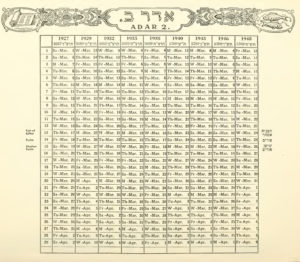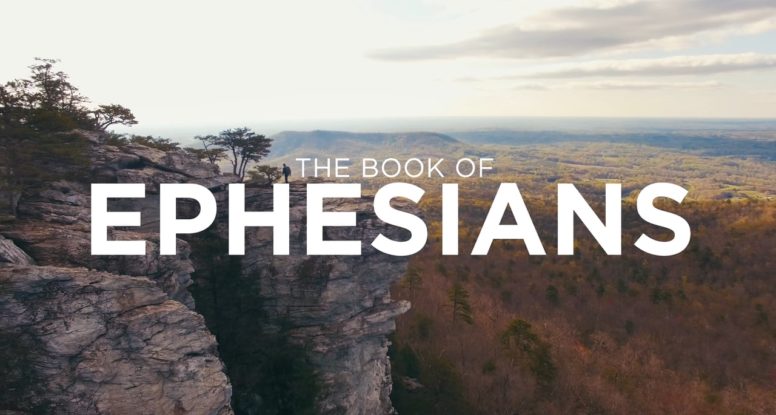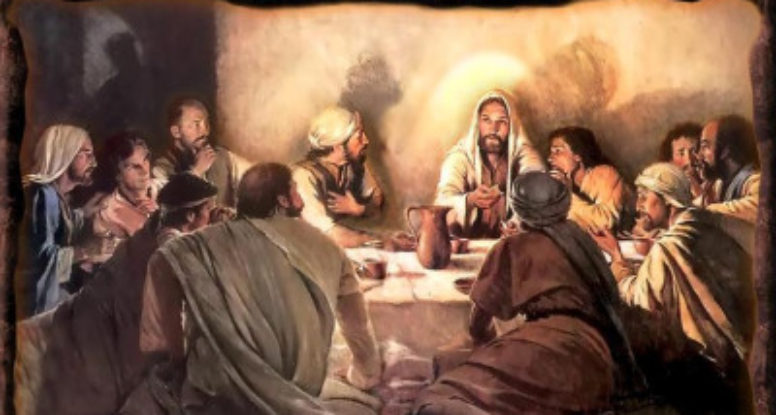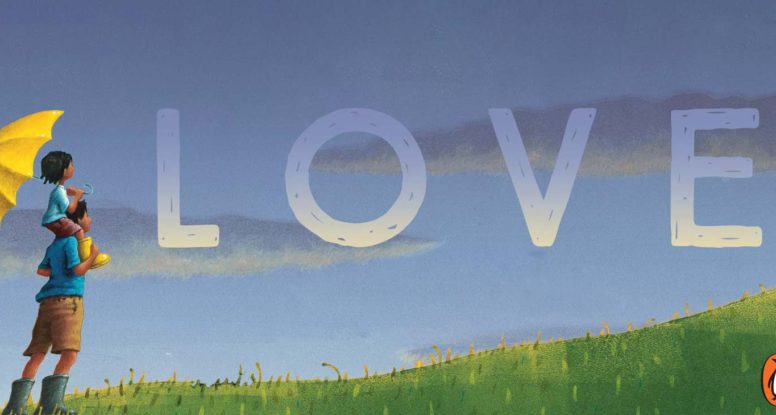It is a constant of modern living that we always seem busy. running here, running there, running everywhere! It amazes me just how much humans can do at one time. I have witnessed many a student listening to music, reading information from a computer screen and taking notes all at the same time. I am guilty of perpetuating this in my classroom – filling every spare moment with some kind of educationally valuable activity.
Attention all parents: Please take comfort in the fact the the Victorian Government is investing in the state’s teachers. The days of mandatory Professional Development for government school teachers are steadily increasing each year. I have recently been enrolled in a professional development program that spans eight unspeakably gruelling days.
As a beginning teacher I would relish the prospect of the latest research-based approach to teaching, learning or school operation. I would also look with disdain upon the more experienced, some would say jaded, teachers. They’d seen it all before and knew that this new whizz bang theory wouldn’t change their practice one iota (there’s my mandatory Greek for the week).
by: Ben
For the past few weeks the Box Hill Care Group (perhaps better know as a Bible study group) has been studying the book of Ephesians each Friday night.
I have shared in this blog before my complete astonishment with regards to the depths the books of the Bible can be studied and Ephesians was no disappointment! It may not have gripped me in the same way as the Gospel of John but it employed plenty of poetry, prayer and metaphor (which I always particularly enjoy). It always amazes me that such ancient texts can hold wisdom that is still relevant today.
I won’t go into an in-depth study here – but I wanted to share some of the things that spoke to me from the book of Ephesians:
First, Paul talks a lot about the Spirit and Signs of the Spirit throughout Ephesians and, for that matter, all of his writings. This passage, towards the end of Chapter 5, blew me away, so to speak: Ephesians 5:18 – 21.
It is a simple passage but as I read it, it felt strangely familiar. It begins by suggesting that being ‘filled with the Spirit’ entails, I paraphrase, ‘singing and making melody in your heart to the Lord’, ‘giving thanks for all things’, and ‘submitting to one another’. Why would this ‘blow me away’?
I looked around as I read it (or rather, in between verses, because I only have two eyes). We, as a group, had just finished singing and making melodies to the Lord (in my case, in my heart as the verse suggests), we had given thanks to the Lord in our prayers that evening and were spending the evening in fellowship, or, submitting to one another.
Our Bible study group is important to me both socially and spiritually and studying this passage was one of those occasions when you read something in the Bible, see it enacted and understand why attention is brought to it. Such a simple observation, but such a powerful reminder of how God provides for all our needs: spiritual, social and physical (I may have neglected to mention that we also share a meal together each week).
Paul then promptly jumps into what could be considered a controversial subject. He uses the example of marriage in a Christian household. I say controversial because at a superficial level the relationship described may seem unequal but with further thought and careful reading it reveals a foundation of respect and love that mirrors the relationship of Christ with the His people (or the Church).
The book of Ephesians is then rounded out with one of those metaphors I love so much – The Armour of God. This armour is to protect us against ‘the wiles of the devil’ but, as it’s a metaphor, I think it is describing the attributes that a Christ-follower should develop along their spiritual journey. I encourage everyone to ponder this armour that is available to us all, not only as protection but as growth and establishment of a Christlike character.
by: Ben
As the Lunar New Year festivities draw to a close my mind is led back to the book of John, which I mentioned some time ago on this very blog.
I still cannot claim to fully understand the Jewish lunisolar calendar with its shorter lunar year, compensatory 19 year Metonic cycle and extra month thrown in every two or three years. But I do know that John referenced many festivals in his gospel.
One mentioned is the ‘Feast of Tabernacles’. And, as John so often does, there is a direct parallel drawn between this feast and the words in John 1:14(a) which are “And the Word (Christ) became flesh (human, incarnate) and tabernacled (fixed His tent of flesh, lived awhile) among us”. This festival originated in Moses’ time and was commanded by God as a commemoration of liberation from Egypt (Leviticus 23:40-43). So it is fitting that John would introduce us to Jesus as he comes to dwell among us.
 Another festival highlighted in the Book of John is that of Passover. This commemoration too originates in Moses’ time. This festival reminds the Israelites of the tenth, and worst, plague of Egypt in which all of the first born died unless a sacrificial lamb had been slaughtered and its blood put upon the doorpost to ensure God’s protection.
Another festival highlighted in the Book of John is that of Passover. This commemoration too originates in Moses’ time. This festival reminds the Israelites of the tenth, and worst, plague of Egypt in which all of the first born died unless a sacrificial lamb had been slaughtered and its blood put upon the doorpost to ensure God’s protection.
It becomes clear through reading John that Jesus himself becomes the sacrificial lamb to save us from death.
Again you can read into this so deeply and draw parallels between the bread associated with the passover and Jesus being the bread from heaven.
Nowadays we don’t always follow these old festivals but as Easter draws near (if you don’t believe me just check out the seasonal section of the supermarket!) it is a good to remember the real significance of festivals that roll around year on year.
“Therefore purge out the old leaven, that you may be a new lump, since you truly are unleavened. For indeed Christ, our Passover, was sacrificed for us.” (1 Cor 5:7 NKJV)
by: Ben
Being a primary school teacher, I’m always on the lookout for good books to share with my students. Some – actually, many – of the children’s books I come across lack depth, meaning and in some cases a storyline (and I’m not talking about the educational ‘A is for apple. B is for bear’ books).
But, every once in a while I come across a fantastic book that not only makes a particular theme or point accessible for a child but also captures the imagination of the adult reader. I recently came across a picture book entitled ‘Love’.
by: Ben
I was born into a Seventh-day Adventist family and grew up attending Adventist schools and, for the most part, attending Sabbath School and Church Services. One of the many consistencies throughout this very consistent upbringing was, and still is, the Bible.
However, while it was always there, I never really understood the importance of this book. Sure, I had been told that it was God’s Word, I was to treat it with respect and it provided a great source of test material for many of my teachers’ who delighted in forcing my fellow classmates and I to learn ‘memory verses’. This was the extent to which I interacted with the Bible until the age of about 15.
with the Bible until the age of about 15.
Then, due to my attendance at an Adventist secondary school I had to study the subject ‘Texts and Traditions’. Sometime during the remainder of my time at Secondary School I studied The Gospel of John.
My mind was blown, my eyes were opened somewhat wider and my life was changed.
Now, I think that most Christian related life changing experiences seem to have to do with accepting Christ as a personal saviour, for me that came later. Until this point people had told me that the Bible was amazing ‘because it spanned hundreds of years and yet remained consistent and that many of the authors we poorly educated but had somehow (most likely divine intervention) managed to write coherent stories, poetry or sermons.’
But in studying the Gospel of John I realised that the Bible was more amazing than I had ever imagined. I had no idea that one book, indeed even one passage, could be read into on so many different levels. I mean on the surface, the Gospel of John tells a story but if you break it down, the very first verse is amazing in itself. It obviously links back to the book of Genesis referencing ‘the beginning’ and then says some strange things about ‘The Word’.
I remember our first assignment when studying John – Our teacher told us that the key term of the Gospel of John was “Word” or in the Greek “Logos” and we were to investigate what was meant by “In the beginning was the Word, and the Word was with God, and the Word was God.” (John 1:1) As this is not a Bible study I won’t go into a dissertation of my findings but I was, from this point on, hooked on John.
My study took me deep into Jewish traditions and festivals, parallel imagery of light and dark, birth and death, significant numbers, metaphors about water and bread and, most importantly, forced into decisions about who this man Jesus actually is. And that’s still only scratching the surface! So impressed was I by the masterful use of linguistic structures in this text that I wanted to know if other books offered the same kind of depth. I got hold of some bible commentaries, concordances and interlinear translations of the Bible and was not disappointed.
The consistency of the Bible as a whole, the links between the books and the complex structuring yet in many cases simple prose and beautiful poetry leaves me in awe. I literally can’t find the words (even with a thesaurus) to express how amazing this collection of books really is! I’m not sure that those who told me that the Bible was amazing ‘because it spanned hundreds of years and yet remained consistent and that many of the authors were poorly educated but had somehow (most likely divine intervention) managed to write coherent stories, poetry or sermons’ actually understood how they were completely underselling the Word of God to me.
Now, I used to love to pore over my commentaries, concordances and interlinear translations but somehow life as a working adult has become busier than I was as a studying student and I find myself either time or energy poor. However, resources are so readily available now days – you don’t need to buy a several volume commentary, concordance and interlinear Bible – you can find them all on the internet.
I would also highly recommend checking out The Bible Project as a fantastic starting point to studying The Word. It lays out in simple terms how to read the Bible while giving each book historical context and alluding to topics and themes for further study.
In closing I am reminded of one of my favourite texts in John “I am the way, and the truth, and the life. No one comes to the Father except through me.” (John 14:6) and what I found when I studied into what it means to be a ‘follower of the way’.
by: Ben
This week I have been thinking about journeys. Not least of all because I am preparing for an overseas trip to a family wedding but also, more broadly, life’s journey and the trials and tribulations it can bring. Even the very small troubles such as the irritating cold and flu going around this season. Life provides us with ups and downs, rough patches and smooth, straight and winding, and whatever other over-used analogies you can come up with – but whenever I think of life’s journey and the tests it brings I am reminded of a piece poetry I would like to share.
It was written by my uncle who has written articles, short stories and many poems but this is one of my favourites:
BECAUSE YOU SHARE THE JOURNEY
Written for Robyn Stanley
“In gratitude to God for the ministry of your life to mine;
a most fragrant and precious gift.”
You make the road easier for me because you share the journey
Simply caring
Quietly listening
Understanding the silence
I don’t have to run to catch up because you are walking beside me
My strength is renewed
And my spirit is blessed
When words are hard to say
We celebrate God’s presence
Together we enjoy the fragrance of His Peace
Gently you hold the bruised reed
And I can rest knowing you will not break it
You have seen a broken reed before
And know The Healer
Gently you apply His healing balm
His Divine Gift to you
Suddenly I feel whole
Again I have heard His Invitation and felt His Touch …
Through you
Together we embrace Wholeness
And I thank God again;
Because you share the journey.
Geoff Panckhurst
March 31 2003
I hope that you can find as much comfort in these words as I have.
by: Ben
 On a recent visit to Melbourne Zoo, I was reminded of the miracle of creation.
On a recent visit to Melbourne Zoo, I was reminded of the miracle of creation.
I was there on official business, in charge of 7 over-excited 5 – 7 year old boys. Having lived on this earth for in excess of 30 years, I have grown to view animals with some amount of apathy, but the expression of wonder on a child’s face as they view their first real-life lemur is, well, a wondrous thing!
And while the miracle of creation was the first thing that came to mind when thinking back on this trip, I realised that the children I visited the zoo with actually had more to teach me than any of the animals.
Please note: names have been changed to protect the children’s privacy.
Now, while I say I was ‘in charge’ of these boys, I guess ‘I was dragged around by’ may be a more apt description! First stop after the education centre was the reptile house. Boy number one, like most 7 year olds, was fascinated by ‘dangerous’ creatures. ‘Look at the teeth on that crocodile!’ and ‘this frog has enough poison to kill an adult male!’ were the catch cries of our visit there.
Later on, we visited the lemurs, boy number 2 ran straight through the enclosure without even seeing one lemur. It was not until the rest of our group caught up with him at the exit and politely suggested that he have another walk through that he saw these strange and charming creatures which he later declared were his favourite animals of the visit.
The pygmy hippopotamus and mandrils were the standout for boys 3 and 4 (and boy number 1, when he found out how dangerous they could be).
Everyone in the group was relieved when we reached the butterfly house. Not because we all loved butterflies, but because boy number 5 did love butterflies and asked every five minutes when we would get to see them. He was sufficiently impressed by their beauty but was so excited by them that he would not stand stand still long enough for one to land on him (Which the rest of the group had to hear about for the remainder of the day).
Boy number 6 almost had us evicted from the zoo because he seemed to incite rage amongst the baboons – never before have I seen animals bang on the glass at the humans on the other side.
Boy number 7 is business-savvy; he still thinks the zoo is missing a fantastic marketing opportunity by not offering elephant rides but does concede that it is probably better to care for this endangered creature rather than profit from it.
As I mentioned at the outset, these boys had some lessons for me.
Boys number 1, 3 and 4 reminded me that everything in this world is God’s and should therefore be feared and respected (Psalms 89:11).
Boys number 2 and 5 reminded me that sometimes we need to slow down and be still to enjoy His creation (1 Kings 19:11-12).
Boy number 7 reminded me of our responsibility for God’s creatures (Genesis 1:26).
And what did boy number 6 teach me? Unless you’re King Solomon, keep your distance from baboons (2 Chronicles 9:21).
by: Ben
A few weeks ago I came across a new term that I had not heard before. ‘Post-fact world’ were the words that caught my ear. ‘How could we possibly live in a world where facts are a thing of the past?’ I wondered. So I decided to investigate.
I came across an article by Francis Fukuyama, senior fellow at Stanford University and Director of the Center on Democracy, Development and the Rule of Law, the man who seems to have coined the term. In his article The Emergence of a Post-Fact World he says, ‘One of the more striking developments of 2016 was the emergence of a “post-fact” world, in which virtually all authoritative information sources are challenged by contrary facts of dubious quality and provenance. In a world without gatekeepers, there is no reason to think that good information will win out over bad.’
Aside from any issues that may arise from who these gatekeepers may be, many instances came to mind where we can see so called facts being challenged by, to borrow Ms Conway’s term, alternate facts. If you haven’t heard what one of Donald Trump’s Counsellors said in response to false facts being spread by the White House Press Secretary you can watch it here – skip to about 1:35s. When it comes to the media, who even decides what is reported as fact?
In recent times, Fake News has become a big issue. Even Primary School Children are warned about the traps of fake news. See this story from BtN 28/11/16.
And we all know President Trump’s feelings on Fake News (or at least on certain news organisations).
It seems to me, in a post-fact world, some people don’t even need alternative facts to counter facts, they just flat-out refuse to accept facts in the first place. Take Senator Malcolm Roberts and Professor Brian Cox’s encounter on Q&A. You can skip to 3:25s if you’re not interested in Prof. Cox explaining why climate change is driven by man.
And then, of course, there’s social media… Opinion and slander flying about as fact, even straight out lying – remember Elizabeth “Elle” Edmunds? The mother who raised money online to treat her non-existent cancer.
But where am I going with all of this?
Frank Crane once said ‘You may be deceived if you trust too much, but you will live in torment if you do not trust enough.’ So who or what can we trust in a post-fact world?
I would suggest that we can trust God’s Word.
God’s Word, the Bible, reveals the creator to us – ‘For his invisible attributes, namely, his eternal power and divine nature, have been clearly perceived, ever since the creation of the world, in the things that have been made. So they are without excuse.’ – Romans 1:20
In addition, the Bible comes directly from God – ‘All Scripture is breathed out by God and profitable for teaching, for reproof, for correction, and for training in righteousness’ 2 Timothy 3:16
And, if you have any doubt in your mind as to the authority or even existence of God, we have been urged to seek proof through the accuracy of the scriptures –
Set forth your case, says the Lord;
bring your proofs, says the King of Jacob.
Let them bring them, and tell us
what is to happen.
Tell us the former things, what they are,
that we may consider them,
that we may know their outcome;
or declare to us the things to come.
Tell us what is to come hereafter,
that we may know that you are gods;
do good, or do harm,
that we may be dismayed and terrified.
Behold, you are nothing,
and your work is less than nothing;
an abomination is he who chooses you.
If we search the scriptures we will find that the record of history is accurate and predictions of the future have been fulfilled.
In a world of post-fact, fake news and alternate facts, we can rely on the Bible.
I urge all to read the Bible diligently, because only by reading it can one form their own opinion and learn about not only the Truth, but also the Way and the Life for ‘Jesus said to him, “I am the way, and the truth, and the life. No one comes to the Father except through me.’ – John 14:6






